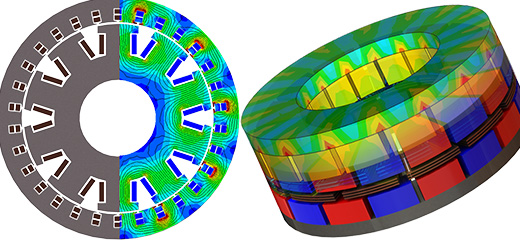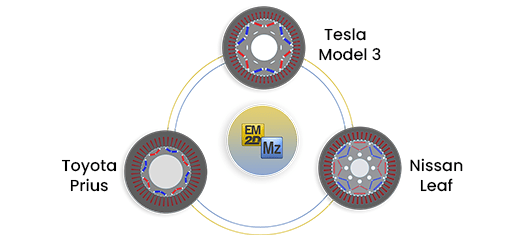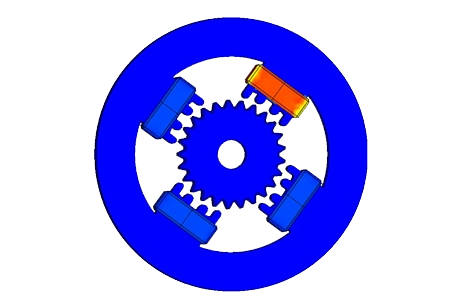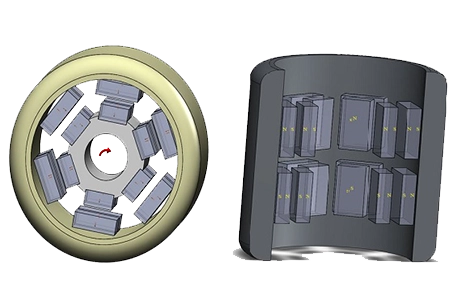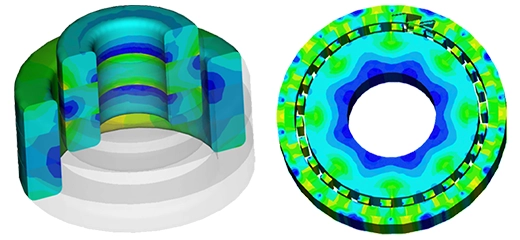Simulating Toyota Prius Motor Using EMWORKS - MotorWizard & Autodesk Inventor
Permanent magnet synchronous motors (PMSMs) have emerged as the motors of choice for many applications requiring high efficiency, high power density, and precise torque control. Their superior performance characteristics make them ideal for electric vehicles, industrial drives, robotics, aerospace, and many other domains where size, weight, and energy consumption are critical factors.
PMSM Design Challenges
However, designing high-performance PMSMs is a complex endeavour that involves optimizing numerous interdependent parameters, including the geometry of the stator and rotor, the magnet configuration, the winding layout, and the materials used. Even minor variations in these parameters can significantly impact the motor's electromagnetic performance, efficiency, torque ripple, and thermal characteristics. One of the primary challenges in PMSM design is striking the right balance between competing objectives. For instance, increasing the magnetic loading (by using stronger magnets or decreasing the air gap) can boost torque density but may also increase the risk of demagnetization and lead to higher iron losses. Similarly, increasing the electrical loading (by increasing the slot fill factor or using higher current densities) can enhance power density but may result in higher copper losses and thermal issues.
Toyota Prius Motor Design
The Prius motor is a 48-slot and 8-pole interior permanent magnet (IPM) synchronous motor. The Prius motor's stator features an innovative V-shaped design that not only contributes to the high torque density but also improves the cooling efficiency by increasing the surface area for heat dissipation. Additionally, the use of high-energy neodymium magnets and advanced materials for the stator and rotor cores optimizes the motor's electromagnetic performance while minimizing losses.
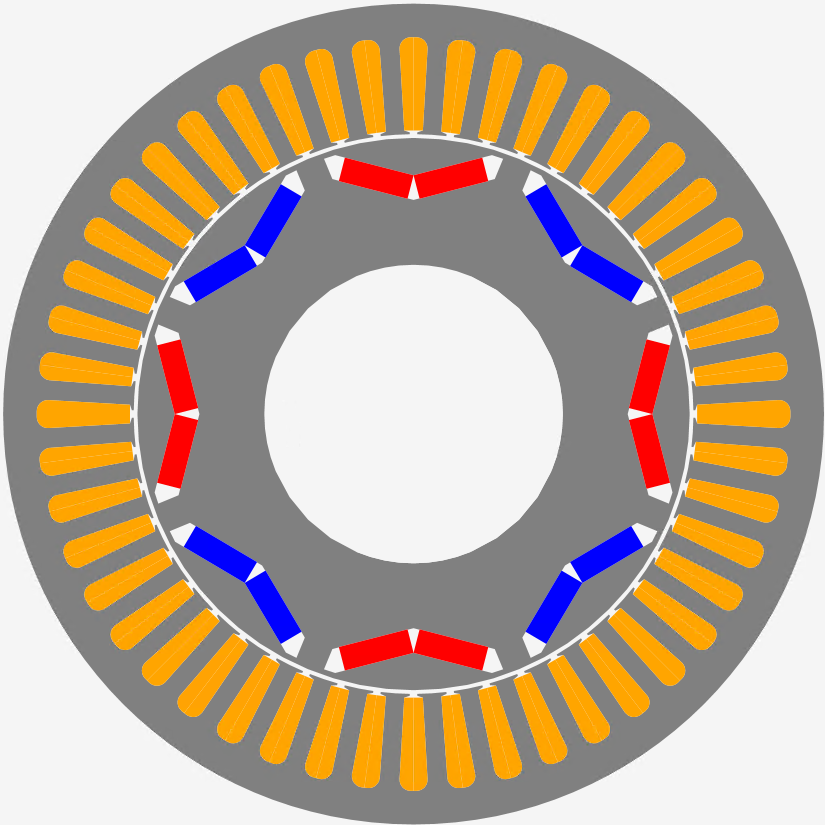
(a)
|
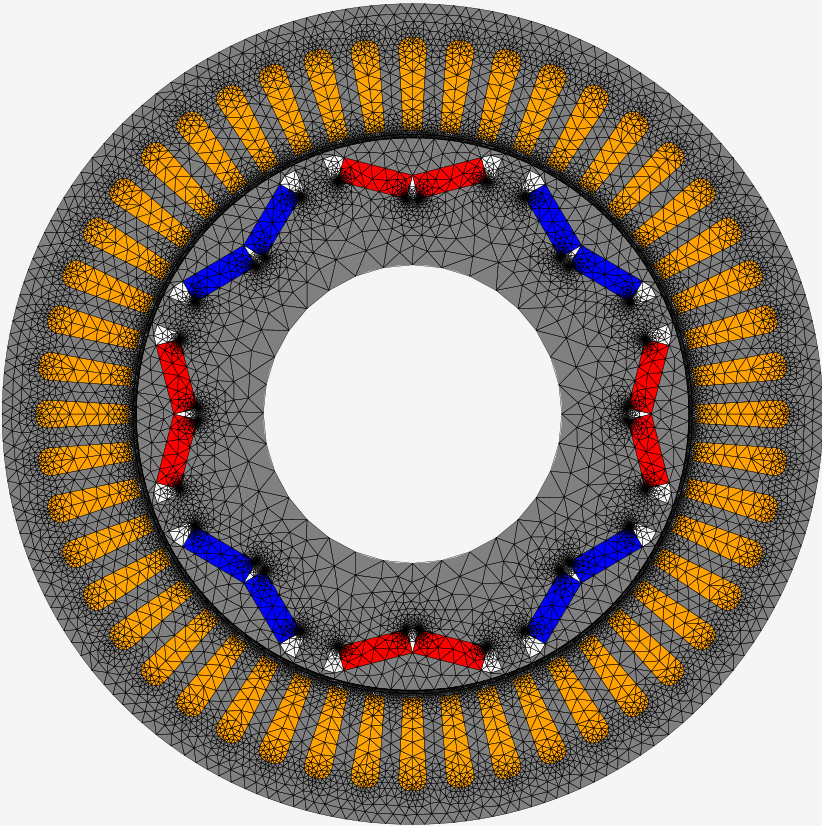
(b)
|
EMWORKS - MotorWizard: A Powerful Tool for PMSM Design and Analysis
EMWORKS - MotorWizard is a comprehensive software solution developed by EMWorks Inc., powered by Autodesk Inventor, that streamlines the design and analysis of PMSMs. This template-based tool empowers motor designers to rapidly create and evaluate PMSM designs, leveraging advanced algorithms and physics-based simulations.
One of the key advantages of EMWORKS - MotorWizard is its user-friendly interface that abstracts away much of the underlying complexity, allowing designers to focus on the core design parameters and performance objectives. The software provides a rich library of pre-built templates for various PMSM topologies, including interior and surface-mounted permanent magnet configurations, as well as concentrated and distributed winding layouts.
Using these templates as a starting point, designers can easily modify and customize the motor geometry, winding parameters, materials, and operating conditions to explore different design alternatives. The software's tight integration with Autodesk Inventor enables seamless translation of the motor design into a detailed 3D model, facilitating visualization, collaboration, and potential integration with other CAD/CAE tools.
At the heart of EMWORKS - MotorWizard lies a powerful finite element analysis (FEA) engine that performs accurate electromagnetic simulations to evaluate the motor's performance characteristics. This includes computing critical parameters such as torque, power, back-EMF, flux linkage, inductances, and magnetic field density distributions. Additionally, EMWORKS - MotorWizard offers comprehensive post-processing and visualization capabilities, allowing designers to analyze and interpret simulation results through intuitive graphs, charts, and field plots. This insight into the motor's electromagnetic behaviour is invaluable for identifying potential issues, refining the design, and validating performance against industry standards or customer requirements.
Simulating the Prius Motor with EMWORKS – MotorWizard
To demonstrate the capabilities of EMWORKS - MotorWizard, we will simulate the design of the Toyota Prius motor and evaluate its electromagnetic performance. The following sections will detail the design process, simulation results, and analysis.
Motor Specifications and Design Parameters
The Prius motor is an 8-pole, 48-slot interior permanent magnet synchronous motor. The key design parameters and specifications are shown in the MotorWizard Manager tabs:
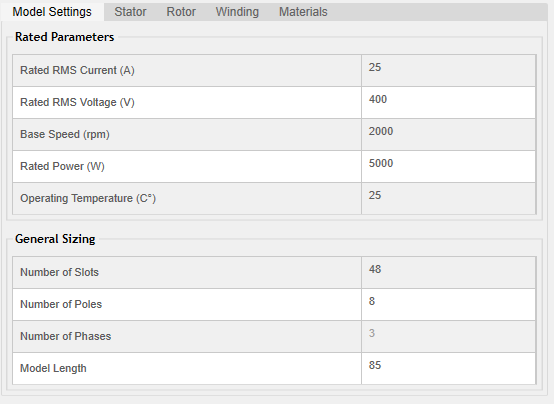
MotorWizard manager – model settings
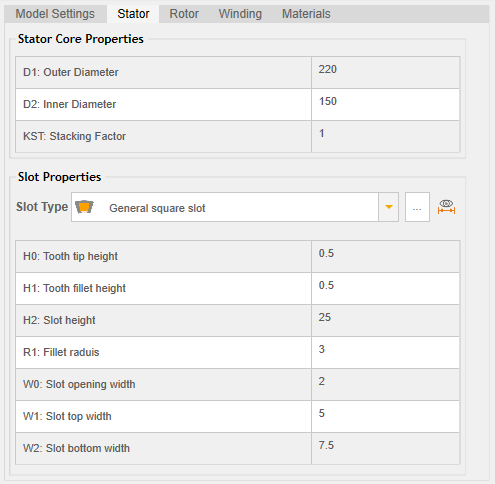
MotorWizard manager – stator settings
|
 MotorWizard manager – rotor settings |

MotorWizard manager – winding settings
|
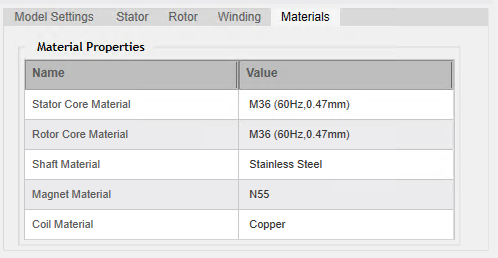
MotorWizard manager – materials settings |
Using the EMWORKS - MotorWizard template library, we can select the appropriate motor topology and start with a baseline design that closely matches the Prius motor specifications. From there, we can fine-tune various parameters, such as the magnet dimensions, winding layout, and material properties, to optimize the design for the desired performance characteristics.
Electromagnetic Performance Analysis
After configuring the motor design parameters, we can leverage EMWORKS - MotorWizard's FEA simulation capabilities to analyze the motor's electromagnetic performance. The software computes a wide range of performance metrics, including:
Torque characteristics: The software calculates the motor's torque, enabling designers to evaluate the motor's performance across its operating range. For the Prius motor, the simulated average torque is 215.19 Nm, aligning closely with the published specifications. The torque ripple is around 5.08 %. The input-rated RMS current for the simulated model is 25 A.
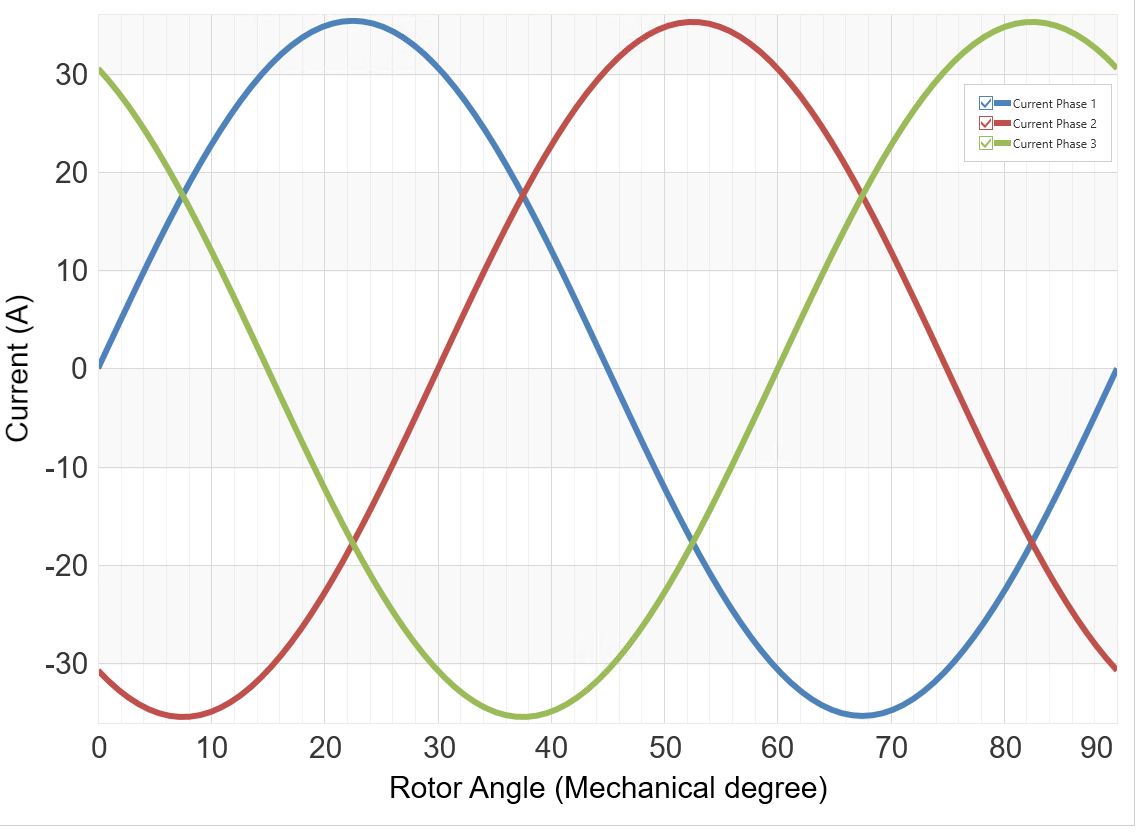
Current excitation of Toyota Prius motor
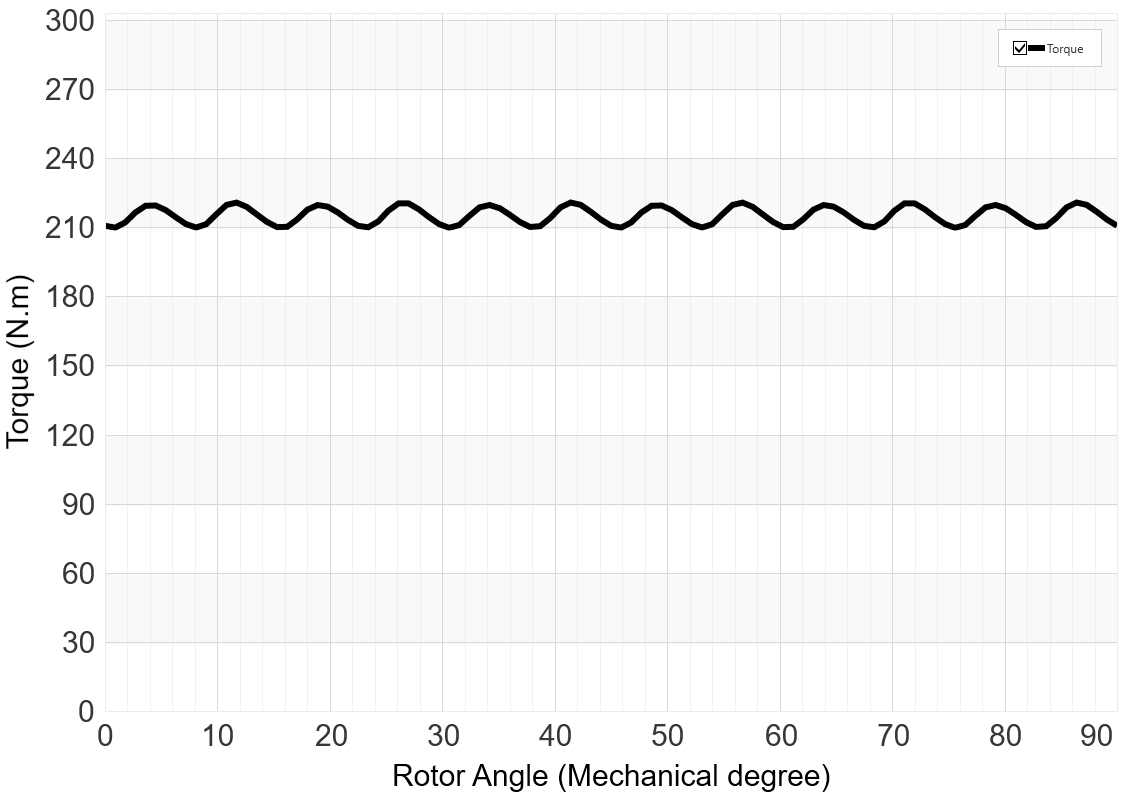
Torque waveform of Toyota Prius motor
Flux linkage: The flux linkage waveforms are critical for assessing the motor's voltage and power requirements, as well as its potential for self-sensing and control. The simulated flux linkage waveforms for the Prius motor exhibit the expected sinusoidal behavior, with minimal harmonic distortion.
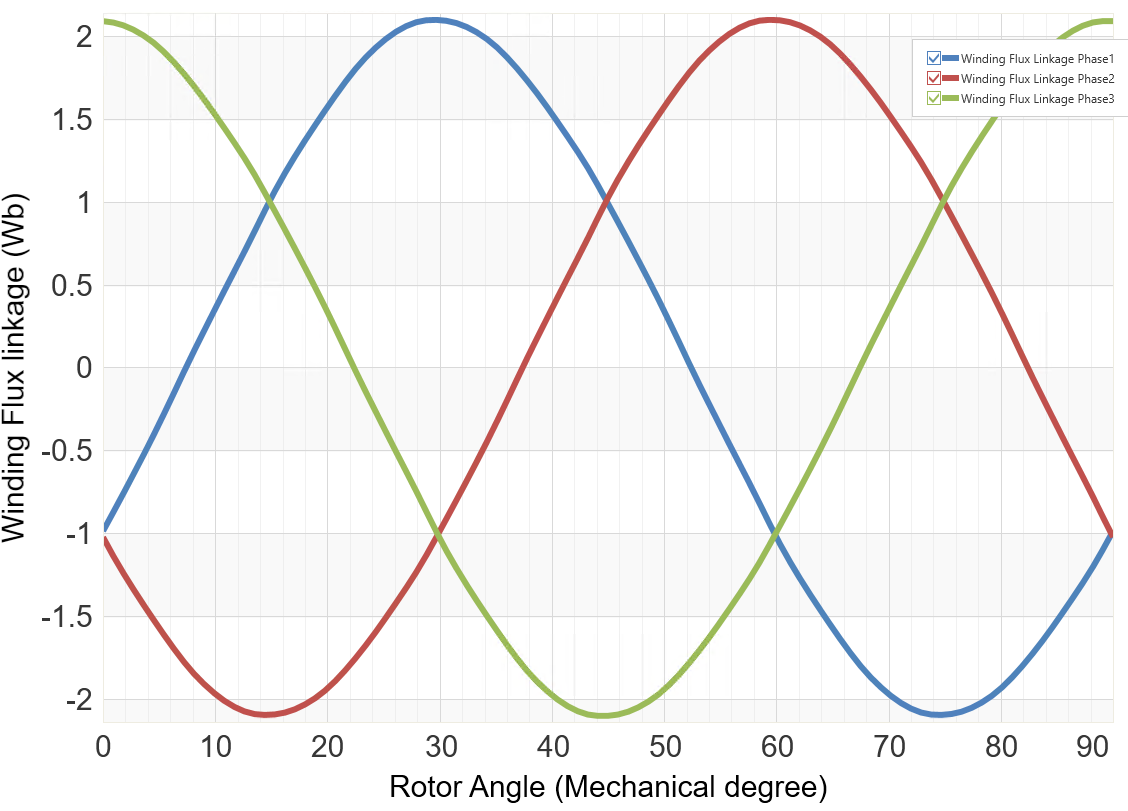
Winding flux linkage of Toyota Prius motor
Inductances: EMWORKS - MotorWizard computes the motor's self and mutual inductances, which are essential for accurate modelling and control system design. The software accounts for the nonlinear effects of magnetic saturation, providing accurate inductance values across the operating range.
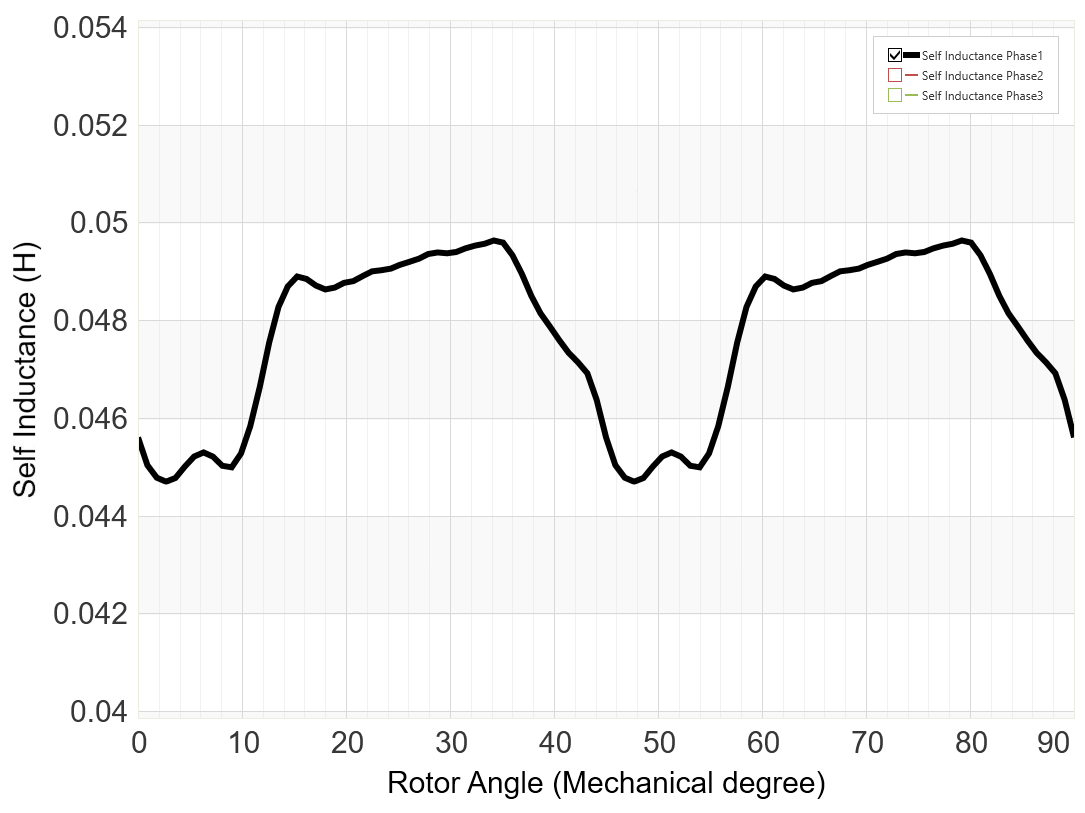
Computed self-inductance of Toyota Prius motor
Magnetic field density plots: Visualizing the magnetic field density distribution within the motor is crucial for identifying potential hotspots, optimizing the flux paths, and minimizing losses. The simulated field plots for the Prius motor reveal a well-optimized magnetic circuit, with minimal flux leakage and minimal saturation in critical regions.
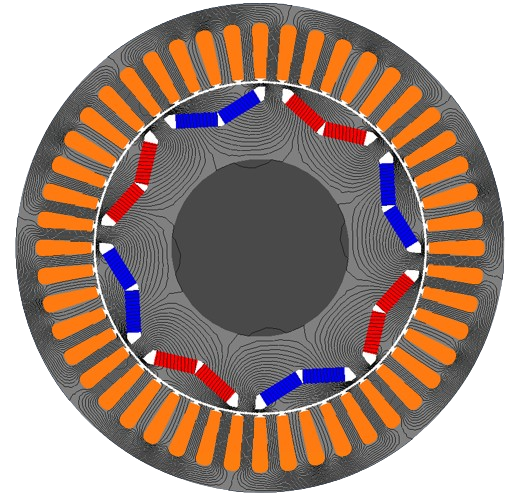
Magnetic flux lines of Toyota Prius motor
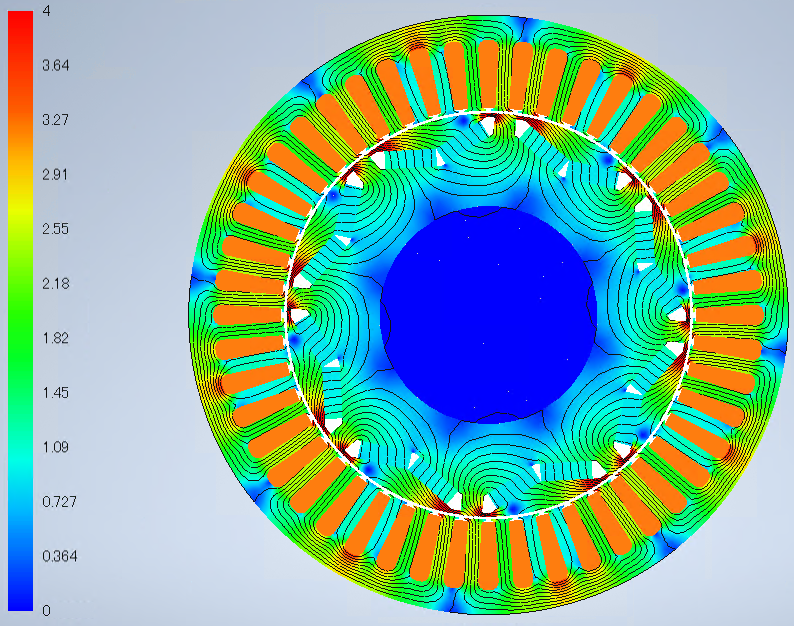
Magnetic flux density of Toyota Prius motor
Benefits of Virtual Prototyping with EMWORKS – MotorWizard:
The ability to accurately simulate and optimize the design of complex PMSM motors like the Toyota Prius motor offers numerous benefits over traditional physical prototyping and testing methods. By leveraging EMWORKS - MotorWizard's virtual prototyping capabilities, motor designers can:
- Accelerate the design cycle: Virtual prototyping eliminates the need for costly and time-consuming physical prototyping, enabling rapid iteration and exploration of design alternatives.
- Reduce development costs: By minimizing the need for physical prototypes and hardware testing, EMWORKS - MotorWizard can significantly reduce the overall development costs associated with new motor designs.
- Improve design quality: The software's advanced simulation and optimization capabilities ensure that the final motor design represents the best possible trade-off between competing objectives, resulting in improved performance, efficiency, and reliability.
By embracing virtual prototyping with EMWORKS - MotorWizard, motor designers can significantly reduce the time, cost, and risk associated with developing high-performance PMSM designs, while ensuring that the final product meets or exceeds the desired performance targets and quality standards.
Conclusion
The Toyota Prius motor represents a groundbreaking and innovative PMSM design that has set new benchmarks for efficiency and performance in the automotive industry. Simulating and optimizing such complex motor designs requires advanced CAE tools that can accurately model the intricate electromagnetic phenomena and capture the intricate trade-offs between various design parameters.
EMWORKS - MotorWizard, powered by Autodesk Inventor, is a comprehensive software solution that streamlines the design and analysis of PMSMs, empowering motor designers to rapidly create, evaluate, and optimize their designs. By leveraging advanced FEA simulations, optimization algorithms, and intuitive visualization tools, EMWORKS - MotorWizard enables designers to explore the vast design space efficiently, identify optimal solutions, and ensure that the final motor design meets or exceeds the desired performance targets.



